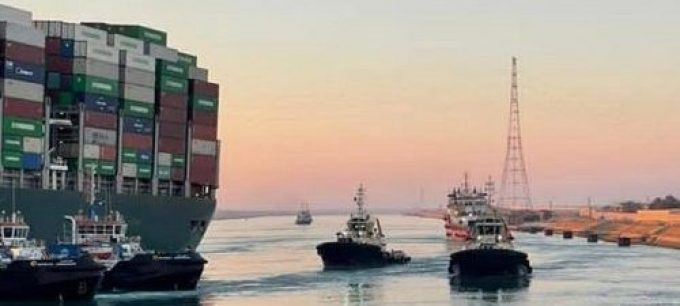Forwarders trust us to be independent, says CMA CGM Air chief Mazaudier
“Forwarders trust us,” insisted Damien Mazaudier, CEO of CMA CGM Air Cargo. “The market is ...

Transpacific container rates could spike to highs not seen since early 2022, if the Red Sea crisis continues to disrupt liner networks.
Asia-Europe ocean carriers have already announced new FAK (freight all kinds) rates of $6,000 per 40ft or more ahead of Chinese New Year on 11 February, and the rate contagion looks likely to spread to other tradelanes in the coming weeks.
Indeed, Jon Monroe of US-based Jon Monroe Consulting, believes we could be heading back to Covid-type disruptions in the liner industry, due to ships being unable to safely transit the Red Sea to and from the Suez Canal.
The canal is the main artery for Asia-Europe trade and, due to Panama Canal draught restrictions, has become increasingly important for Asia-US east coast trade too.
“If vessels continue to get out of sync, then we will witness a ‘worst case scenario’ for Chinese New Year that could take us through to May,” said Mr Monroe.
“It seems that Mother Nature and the Houthis have teamed up to create a supportive environment for ocean carrier rate increases through 2024,” said the analyst.
And he has a word of caution for BCOs preparing for the new transpacific contract season, which traditionally begins around the timing of the TPM conference in Long Beach, in early March.
“If containers become backed up we could see the European rates being adopted for US-bound vessels,” he warned.
Moreover, with the Suez Canal out of action, and the all-water Panama Canal route restricted, US west coast ports could expect a substantial number of boxes destined for US east and Gulf coast destinations, being re-routed through west coast hubs for onward forwarding, potentially giving rise to landside congestion.
However, notwithstanding the expected increase in demand for Asia-US west coast services, ocean carriers appear to be holding firm on their voyage-blanking intentions.
According to the latest report from maritime and supply chain intelligence company eeSea, there has in fact been an increase in the number of cancelled sailings on the tradelane.
“We are already seeing an uptick in announcements of blank sailings just into the first week of 2024,” said eeSea, which would bring the total to 12 proforma voyages voided by transpacific carriers up to the end of February.
Meanwhile, US exporters are also beginning to voice concerns that supply chain disruption and skyrocketing headhaul rates could see a return to post-Covid container imbalances, with shipping lines opting to return empty containers to Asia rather than make equipment available for exports.
Furthermore, the executive director of the powerful Agricultural Transportation Coalition, Peter Friedmann, told the Journal of Commerce that US ocean transport regulator the Federal Maritime Commission (FMC) “should guard against” carriers profiteering from Red Sea surcharges.
Unlike Europe, the FMC requires carriers to give 30 days’ notice before imposing surcharges, but it has waived this requirement on request after carriers declared force majeure on cargo already on the water.
Subsequently the lines have announced a number of surcharges shippers must pay before they will allow release of containers at destination ports.
Mr Friedmann questioned the validity of the additional charges and asked: “Are these surcharges necessary to defray carriers’ actual and unexpected costs?
“Imposing additional charges on shippers, with little or no advance notice and, in many cases, when the shipment is already in transit, creates great hardship,” he added.
Comment on this article